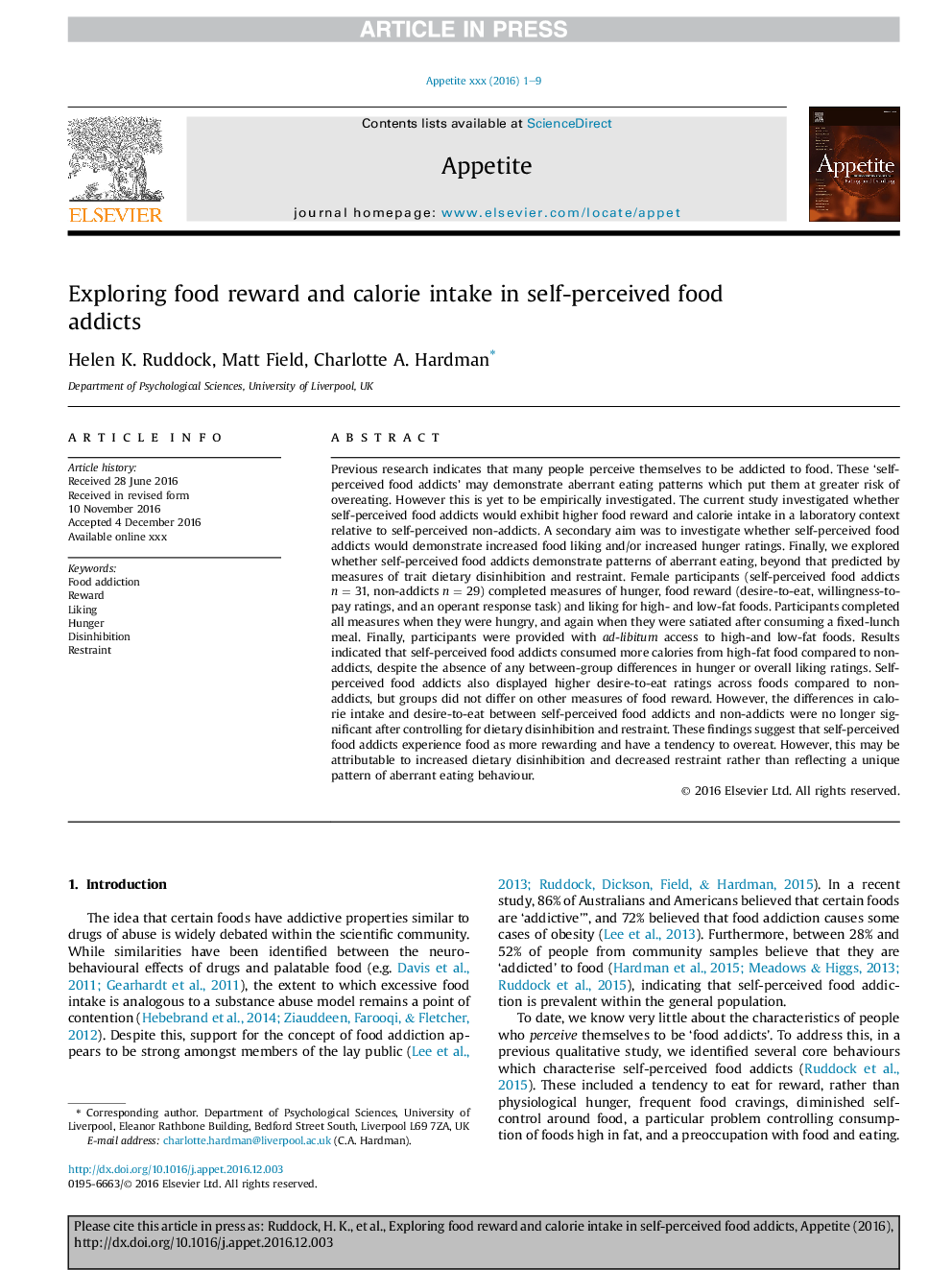ترجمه فارسی عنوان مقاله
بررسی میزان پاداش غذا و مصرف کالری در معتادان معتاد به مواد غذایی
عنوان انگلیسی
Exploring food reward and calorie intake in self-perceived food addicts
| کد مقاله | سال انتشار | تعداد صفحات مقاله انگلیسی |
|---|---|---|
| 112718 | 2017 | 9 صفحه PDF |
منبع

Publisher : Elsevier - Science Direct (الزویر - ساینس دایرکت)
Journal : Appetite, Volume 115, 1 August 2017, Pages 36-44
ترجمه کلمات کلیدی
وابستگی غذایی، جایزه، عادت ماهیانه گرسنگی، رد شدن، خویشتن داری - خودداری - پرهیز،
کلمات کلیدی انگلیسی
Food addiction; Reward; Liking; Hunger; Disinhibition; Restraint;

